“Return to the essentials of life, to get rid of all that is superfluous”
The Holy Father reminds us that, every year, the Lord gives us the opportunity to look at our life from the "true light that enlightens every man" and "to return to the essentials of life, to rid ourselves of all that is superfluous and can become an impediment on the path of holiness"
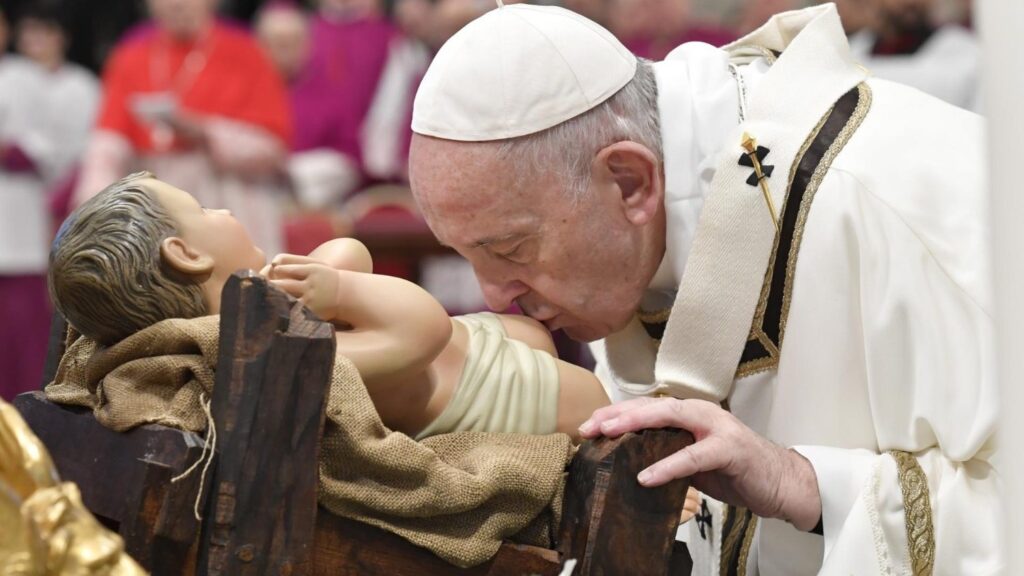
“God, who comes to our human condition, chooses poverty. In the same way, we are called to return to the essentials of life, to get rid of all that is superfluous and can become an impediment on the path of holiness”, this is Pope Francis’ tweet for this 5th December, the 1st Week of Advent, in which he reminds us that the Lord once again gives us the grace to prepare ourselves to celebrate the mystery of his Birth.
The importance of inner gratitude
While Pope Francis continues to participate in the meeting of the Council of Cardinals (C9), this morning from his account @Pontifex he published a tweet that takes inspiration from the address he gave to the members of the Roman Curia on the occasion of Christmas greetings on 22 December 2022. On that occasion, the Pontiff indicated to his collaborators in the various Vatican Dicasteries the importance of having as a starting point the memory of the good.
“Indeed, it is only when we are aware of the good that the Lord has done for us that we are also able to give a name to the evil that we have experienced or suffered. To be aware of our poverty, without also being aware of God’s love, would crush us. In this sense, the inner attitude to which we should attach most importance is gratitude”.
To convert is to put into practice all the good that is possible.
In this sense, as the year 2022 drew to a close, Pope Francis invited the Roman Curia to thank God for all the benefits that the Lord had given them during this time, but above all for the gift of personal and communal conversion.
“To convert is to learn to take the message of the Gospel more and more seriously, and to try to put it into practice in our lives. It is not simply a matter of distancing oneself from evil, but of putting into practice as much good as possible: this is conversion. In the face of the Gospel, we are still like children who need to learn. Believing that we have learned everything makes us fall into spiritual arrogance”.
We must trust in the Lord alone
The Holy Father also warned his collaborators that we often forget that conversion not only makes us aware of evil in order to make us choose the good, but at the same time drives evil to become more insidious and to mask itself so that we cannot recognise it.
“Our first big problem is to trust too much in ourselves, in our strategies, in our programmes. It is the Pelagian spirit I have spoken about before. So some failures are a grace, because they remind us that we don’t have to trust in ourselves, but only in the Lord”.
Mercy and forgiveness as medicines for peace
Finally, Pope Francis concluded his Christmas greetings to the members of the Roman Curia, pointing out the urgency of peace in the world in the face of so many situations of war and conflict, that a year later, we are still living the cruelty of this drama.
“If it is true that we want the clamour of war to cease and give way to peace, then let everyone begin with himself. St Paul tells us clearly that benevolence, mercy and forgiveness are the medicine we have to build peace”.
The Pontiff greeted his collaborators by reminding them that there is nothing weaker and more fragile than a crucified man, and yet in that weakness the omnipotence of God was manifested. For this reason, the Pope wished that gratitude, conversion and peace be the gifts of this Christmas.
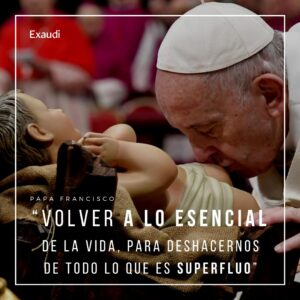
Related
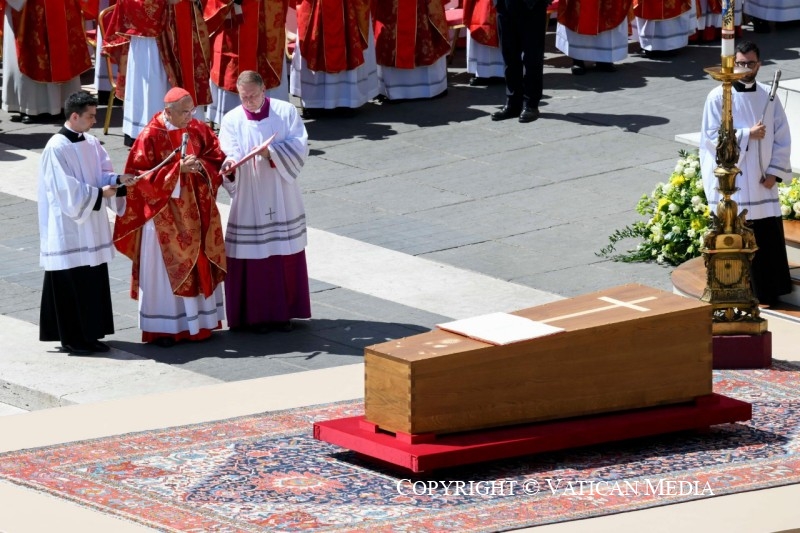
Mercy and the joy of the Gospel are two key concepts of Pope Francis
Exaudi Staff
26 April, 2025
9 min

Thousands of faithful bid farewell to Pope Francis in St. Peter’s Square
Exaudi Staff
26 April, 2025
2 min
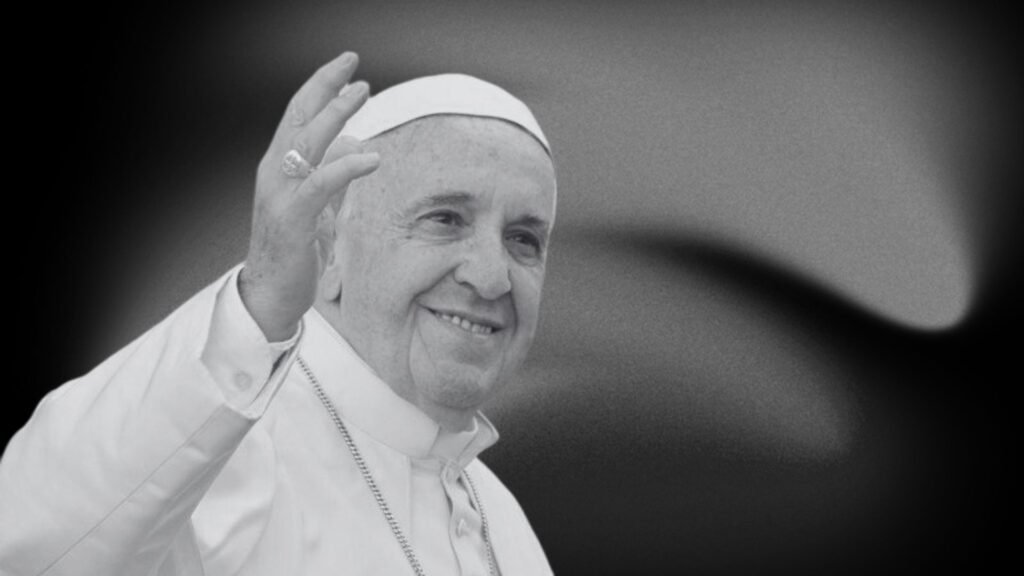
Saying Goodbye to Francis
Exaudi Staff
26 April, 2025
2 min
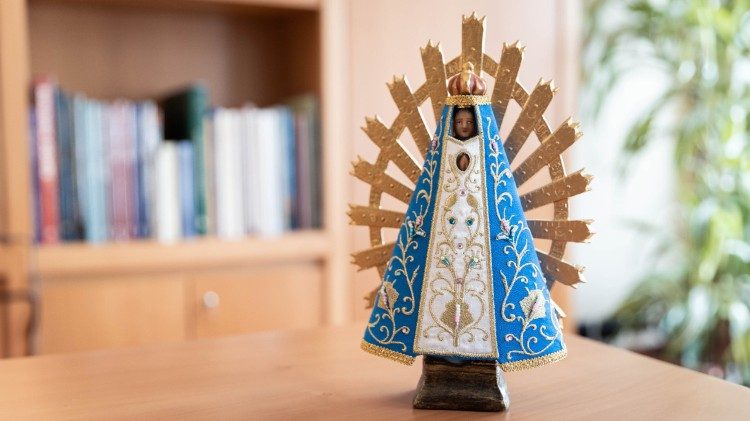
Pope Francis Gifts a Statue of Our Lady of Luján to Gemelli and the Catholic University of the Sacred Heart
Exaudi Staff
25 April, 2025
2 min
 (EN)
(EN)
 (ES)
(ES)
 (IT)
(IT)

